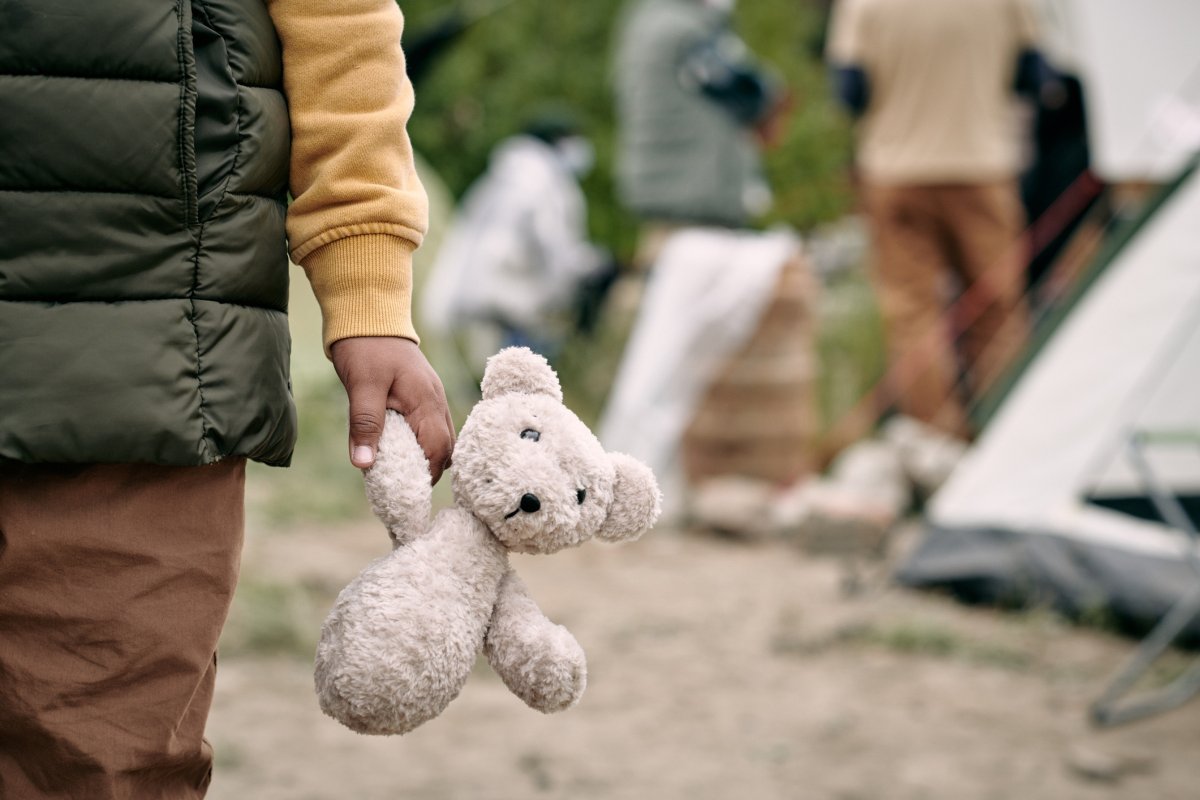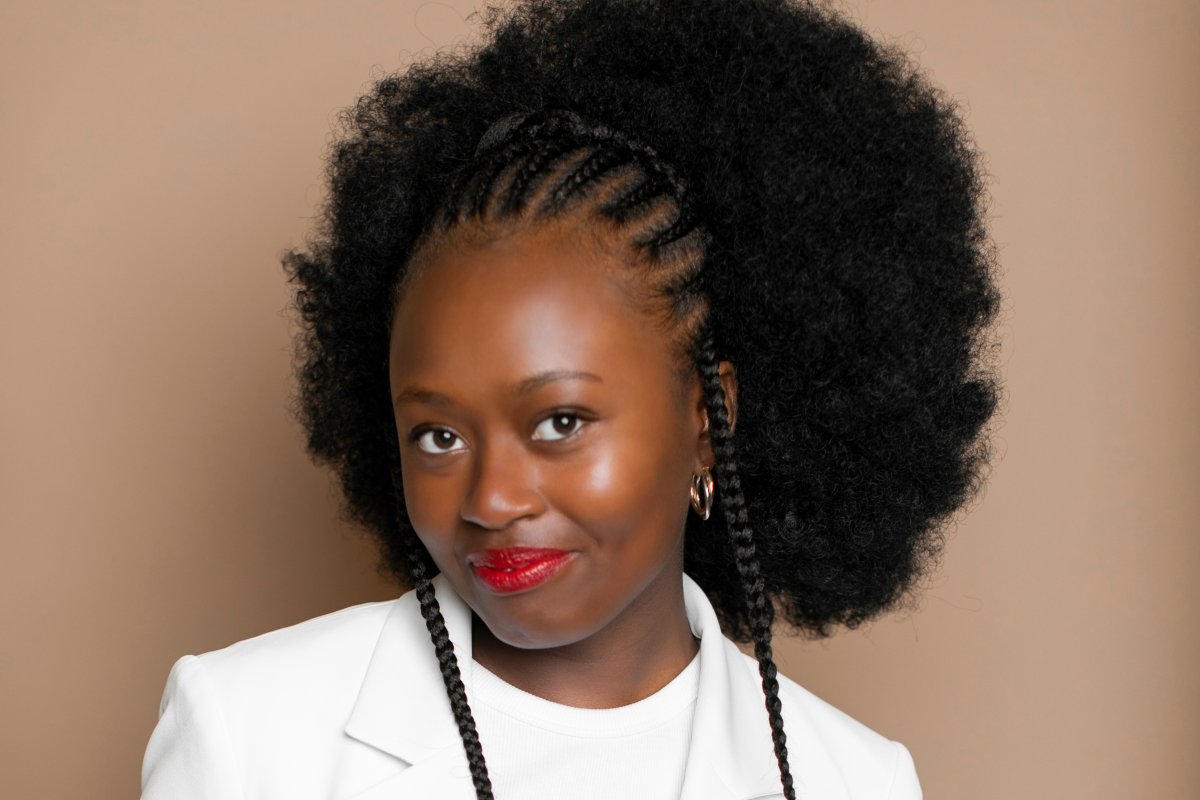I was just two years old when my siblings and I fled our home in the middle of the night, fearing for our lives. We ran as best we could on the dirt roads during the night and hid in what cover we could find during the day. We did not have food to eat, and we drank what little water we could find. By the time we reached the Ugandan border, like many refugees, we could barely walk. It took us nearly a week to physically recover.
I am a refugee from Congo. The conflict took everything away from me: my home, my family, my friends, and my beautiful country.
We lived in the refugee camp until I was about 11 years old. Life was hard. There was not enough to eat, people could be unkind, and our future was so uncertain. But it was interesting, and sometimes even fun, too. We had each other to keep us company and there were so many personalities crammed into close living quarters. Each day there was a new drama, a new story, to distract us from feeling hungry or thinking about the situation we were in.
Even at a young age, I knew education was my only way out, but it seemed like a distant, unattainable dream. As a young girl, I was told repeatedly by adults all around me that I was meaningless. An arranged marriage and motherhood before 20—guaranteeing a life in poverty—were all I was told to expect.
I knew I had more inside me, and started imagining how my life could be in America—how my deep desire for an education would come true. I knew that if I could read and write, my place in life would be meaningful.

But when we were approved to go to America, doubt took over. Since I was young, I had been looking for a home to belong to. I did not know if this new country would really accept me. As a refugee, I didn't know if I would ever find a country that would really accept me. I just had to keep telling myself: education is my key.
Arriving in America
When we arrived in Utah, I could not wait to start school. It became my life. I went to school from 6 a.m. to 6 p.m. every day because teachers came early and stayed late to tutor me. That became another motivation for me, knowing that there were all these people who truly wanted to see me succeed.
I was always thinking of my future. I recognized that the knowledge I was gaining and the opportunities I was given would not only help me, but also others in the future, like women and youth from my home. It was no longer just about me.
School was really different. Not just little things, like learning to use a locker—I hated that—or that everyone spoke a different language than me. But the learning style was also very different. It wasn't easy to learn in the refugee camp since there were hundreds of kids jammed together with just a few teachers. Here, the classes seemed small.
The biggest difference was motivation. In America, you learn for your future. In the camp, girls had no idea what their future held—whether they'd be married and have to leave school. The goal had been to teach the basics of reading, writing, and math, and the motivation had been avoiding the pain of a beating if you got it wrong. In the U.S., the goal is to create your life.
Navigating the American foster system
America was fun, strange, and hard. So many things struck me as different or unusual—besides cheese pizza and garage doors. People dress casually here. Congolese are known to dress well so, to me, dressing casually came across as sloppy. And in summer, I was shocked by how short girls' shorts were, because at home everyone wears something long to cover their legs.
I knew very little about the internet—Google, YouTube and other social media were new to me. I was amazed at how many young kids had phones—I didn't have my first phone until I was 18.
When we first came to the U.S., we didn't really get along with a lot of people in the faith-based agency that ran the foster care program we were part of. When we asked the agency to allow us to live with our caretaker from the camp, Tibasima, they told her to take classes to learn how to become a parent. I was so mad that they expected her to go take parenting classes while she was already trying to learn English.

It always felt like they saw us as a problem. I felt the people in the agency did not really understand what it meant to completely leave your country and then be separated from the only people you knew in your new country.
Every month, we went to family court and a judge would determine whether our foster family was doing a good job. I really hated court days. We hurt our foster family when we would tell the judge that we wanted to live with our refugee family, and I hated hurting them. They took all four of us when we didn't want to be separated, and cooked for us, treated us like their own children, and loved us. I hated the bad energy that we brought home from court.
Tibasima fought to become our guardian again in America. We went to court to be with her and our older brothers and, eventually, they convinced the foster system to let them be our caretakers. The first day we were all under one roof once again as a family after leaving the foster system, I was disillusioned. By now, I was 14 and my siblings were 12, 13 and 16.
All these months, I'd dreamed of truly spending time with my family again, like when we were together at the refugee camp. But we all had different schedules. The only time we had dinner or lunch together was on Sundays, and even then, sometimes someone slept through the meal because their week was too long and tiring.
Thriving in education
School still took over most of my life, but I was willing to take risks and do what it took to learn and grow. I became independent in everything except my finances, for which I was still dependent on the foster care program.
My "aha moment" was when I took a test in a class and I got 100 percent and the rest of class had to retake the test while I watched. This is when I realized that if you work hard, have desire and determination, and believe in yourself, you can do anything.
I graduated early from high school on May 15, 2019. I was so incredibly happy. I could not believe that I had graduated, especially after being told that I would not even get my high school diploma, that I would not achieve anything with my life.
Today, I hold a Bachelor of Science in Criminology and a Bachelor of Science in Health, Society, and Policy, with a minor in Entrepreneurship and Pre-business, from the University of Utah. I am also the CEO of a non-profit organization that provides education in Uganda.
Throughout my journey in life so far, I've learned that nothing can break you unless you let it. I believe you can overcome anything—as long as you are willing to learn and embrace everything that comes your way.
Desange Kuenihira is the author of the memoir UnDEfeated Woman and CEO and founder of unDEfeated, a non-profit organization that provides education for underprivileged youth and women with extreme financial hardship in Uganda.
All views expressed in this article are the author's own.
Uncommon Knowledge
Newsweek is committed to challenging conventional wisdom and finding connections in the search for common ground.
Newsweek is committed to challenging conventional wisdom and finding connections in the search for common ground.
About the writer
To read how Newsweek uses AI as a newsroom tool, Click here.






